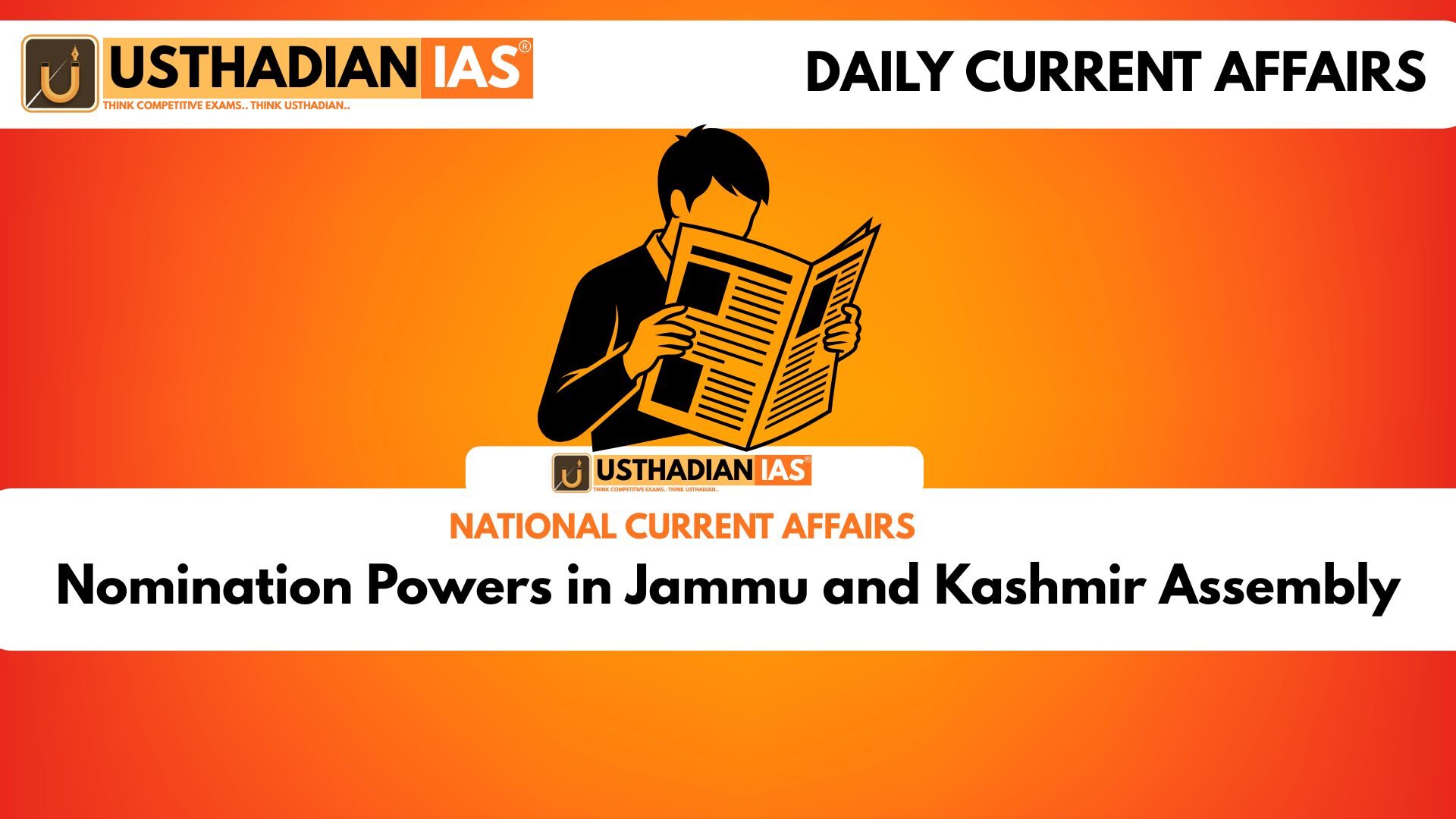Recent development
Nomination Powers in Jammu and Kashmir Assembly: The Union Home Ministry informed the Jammu & Kashmir and Ladakh High Court that the Lieutenant Governor (LG) of Jammu & Kashmir has the authority to nominate five members to the Legislative Assembly without consulting the Council of Ministers. This clarification has sparked debates about the balance of power in Union Territories with legislatures.
Constitutional background
The Constitution of India provides for nominated members in both Parliament and State legislatures. The Rajya Sabha includes 12 nominated members chosen by the President on the Union Council of Ministers’ advice. In States with Legislative Councils, Governors nominate members on their Council’s advice. The Anglo-Indian seat nomination in legislatures was abolished in 2020.
Static GK fact: The Rajya Sabha was constituted in 1952 and is a permanent body not subject to dissolution.
Nomination in Union Territories
Nomination rules in Union Territories vary by statute. The Delhi Assembly has 70 elected members with no provision for nominated MLAs. The Puducherry Assembly includes 30 elected members and up to three nominated by the Centre. After the 2019 reorganisation and 2023 amendment, the J&K Assembly consists of 90 elected seats and five nominated members. These include two women, two Kashmiri migrants, and one displaced person from Pakistan-occupied Kashmir (PoK).
Static GK Tip: Puducherry is the only Union Territory with a Legislative Council proposal under discussion, though it is yet to be established.
Court rulings on nomination powers
The Madras High Court (2018) upheld the Centre’s power to nominate Puducherry MLAs without consulting the UT Council of Ministers. Later, the Supreme Court overturned parts of this reasoning, clarifying that the nomination process must be consistent with statutory provisions. In the 2023 NCT of Delhi case, the Supreme Court highlighted the triple chain of accountability—civil servants answer to ministers, ministers to the legislature, and the legislature to the people. This ruling emphasized that the LG must generally follow ministerial advice, raising questions about the J&K scenario.
Democratic concerns
Union Territories, though distinct from States, operate elected assemblies to reflect the will of the people. Allowing nominated MLAs to sway majorities may distort the democratic mandate, especially in smaller assemblies like J&K and Puducherry. The issue carries added weight in J&K, given its unique history of special status before 2019 and the pending restoration of statehood. Experts argue that the LG’s nomination power should ideally align with the Council of Ministers’ advice to safeguard democratic legitimacy.
Static GK fact: Jammu & Kashmir had a separate Constitution until 2019, when Article 370 was abrogated and the state was reorganised into two Union Territories.
Static Usthadian Current Affairs Table
Nomination Powers in Jammu and Kashmir Assembly:
| Topic | Detail |
| Authority to nominate J&K MLAs | LG can nominate 5 members without Council of Ministers’ advice |
| Composition of J&K Assembly | 90 elected + 5 nominated |
| Categories of nominated members | 2 women, 2 Kashmiri migrants, 1 PoK displaced person |
| Nomination in Rajya Sabha | 12 members nominated by the President |
| Anglo-Indian provision | Abolished in 2020 |
| Delhi Assembly | 70 elected members, no nominated MLAs |
| Puducherry Assembly | 30 elected + 3 nominated by the Centre |
| 2018 Madras HC ruling | Upheld Centre’s power in Puducherry nominations |
| 2023 Supreme Court case | Reaffirmed LG must follow Council of Ministers’ advice in most cases |
| J&K status change | Article 370 revoked in 2019, UT created with plans for statehood restoration |








